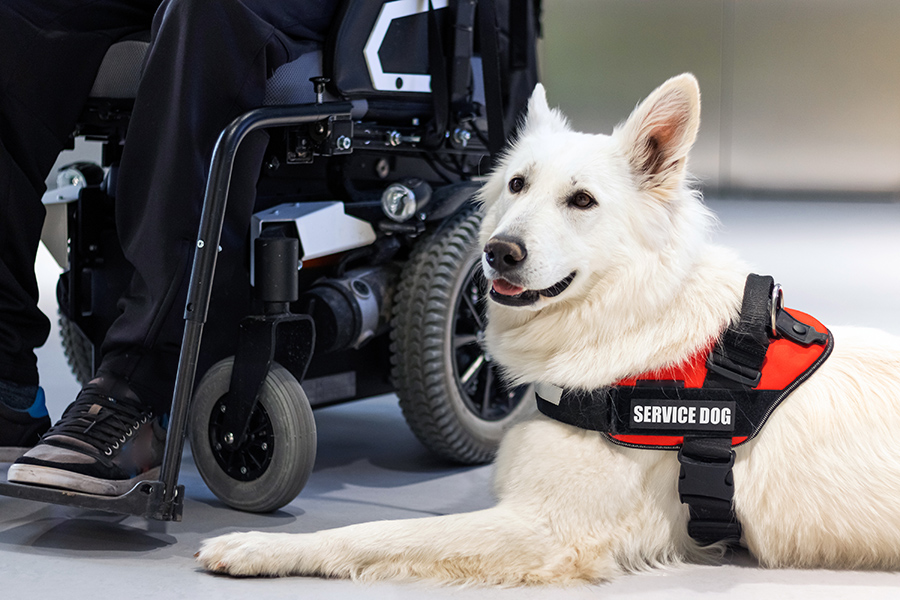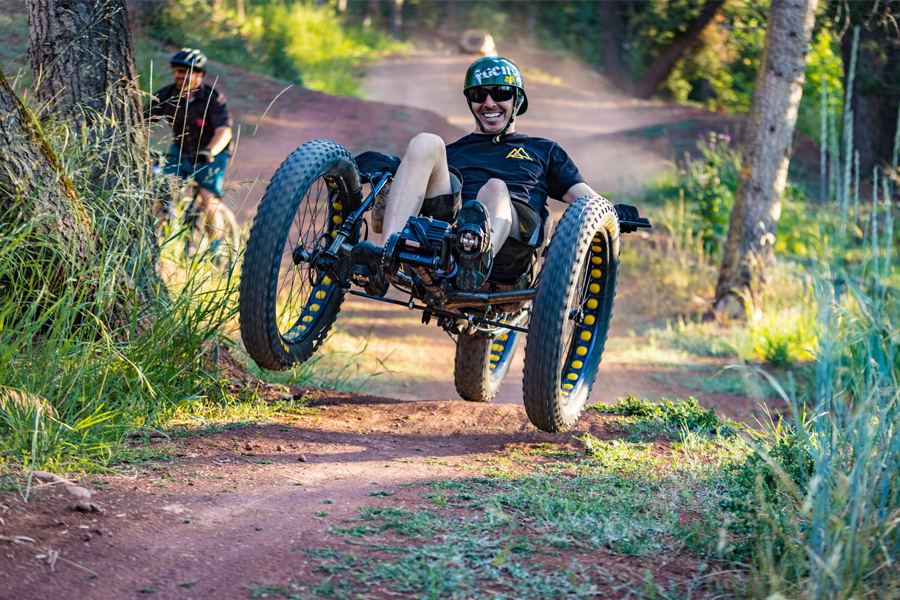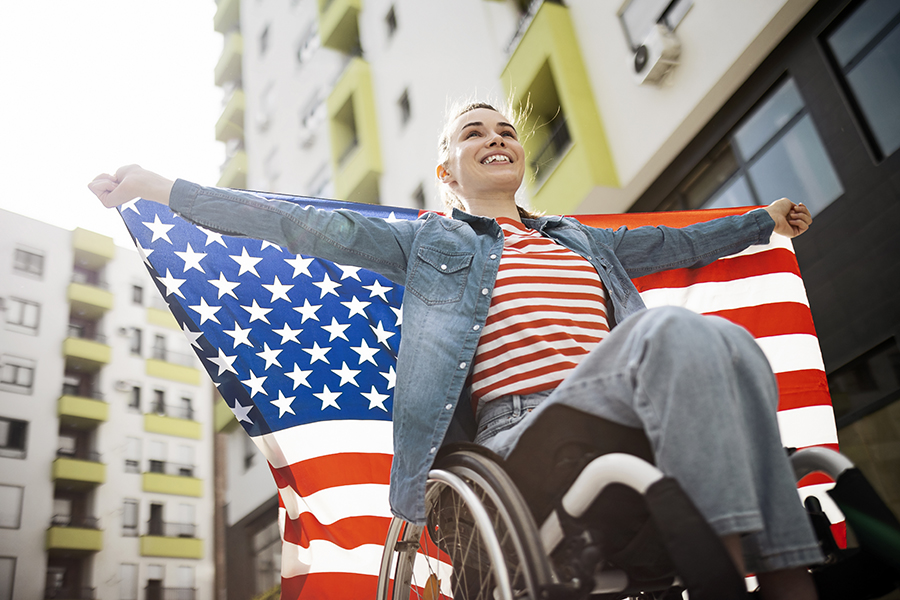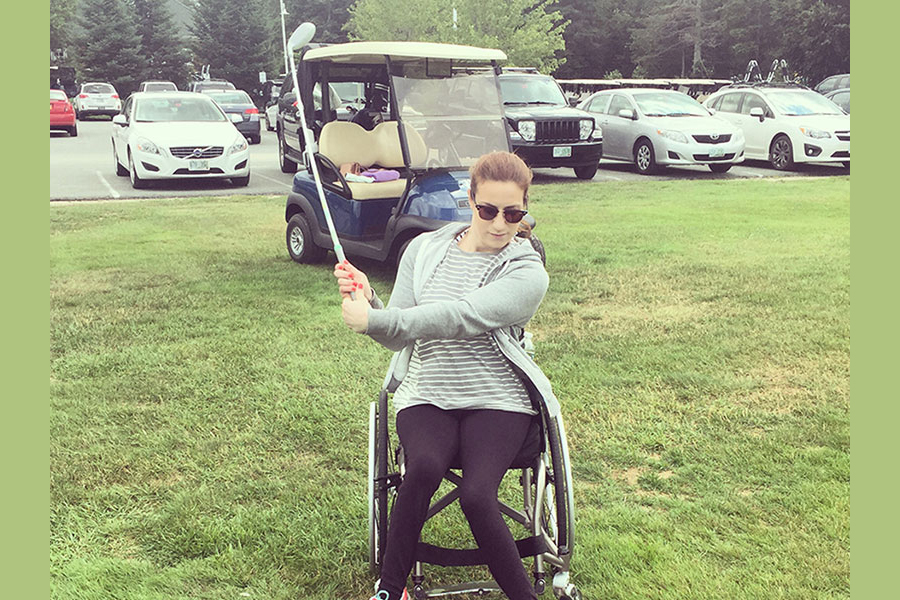Service Animals: Enhancing Independence and Quality of Life
As we know, living with a spinal cord injury presents numerous challenges that affect one’s mobility, independence and state of mind. Service animals can play a transformative role, offering both practical assistance and emotional support by enhancing mobility, increasing independence and boosting morale. A well- trained service animal can empower an individual to lead a more fulfilling life despite the challenges of SCI.
In this blog, I will share the significant role of service animals in the lives of people with spinal cord injuries and how the remarkable bond between humans and animals can renew a person’s sense of freedom, emotional well-being, and an overall improved quality of life.
What are Service Animals?
While many different animal species can be trained to perform tasks that aid individuals with disabilities — including pigs, cats, horses, monkeys and birds — by far, the most common service animals for spinal cord injury are dogs. According to the Americans with Disabilities Act (ADA), a service dog is “a dog that is individually trained to do work or perform tasks for a person with a disability.” Canines undergo rigorous training to ensure they can perform a range of tasks to aid their human companions.
Assistance Tasks Include:
1. Mobility Support: Most service animals are trained to help retrieve dropped items, turn on lights, open doors, and even pull a wheelchair like a wagon.
2. Alerting and Response: They can also be trained to recognize signs of medical emergencies, such as seizures or drops in blood pressure, and respond accordingly. This ability is particularly crucial for those with SCI, as they may have limited sensation or mobility to seek help independently.
3. Retrieving Items: For individuals with limited mobility, bending down or reaching for objects can be challenging. Service animals can be trained to fetch items, including medication, phones, or other essential objects, reducing the need for assistance from others.
*I have witnessed a well-trained canine pick up a credit card off the floor, stand his hind legs to press a button for an automatic door, and select specific medication from a zipped bag that hung on the back of a wheelchair… Amazing!
4. Opening Opportunities for Socialization (Ice Breakers): Service animals also act as social facilitators, promoting interaction and conversation. They can ‘break the ice’ of isolation by sparking conversations beyond preconceived social barriers.
Emotional and Psychological Benefits Include:
1. Companionship and Emotional Support: The presence of a service animal can significantly reduce feelings of loneliness and isolation. The unconditional love and companionship offered by an animal can provide comfort and emotional support during difficult times.
2. Mental Health Enhancement: I have seen first hand how a service animal can prove effective in reducing anxiety, depression, and stress. The bond between my friend Tom (quadriplegic) and his service dog “Pearl” is unbreakable. Pearl adds incomparable value to Tom’s life and enhances his sense of purpose, boosts his self-esteem, and improves his overall mental well-being.
Selecting and Training Service Animals
The selection process for a service animal is very important and involves considering factors such as breed, temperament, size, and energy level. When choosing a service animal, it is crucial to find an animal that matches your unique lifestyle, needs, and preferences. Just as every individual person is different, every individual service animal is different, with a distinct personality and unique capabilities.
Service animals (especially dogs) undergo intensive training to acquire the necessary skills to assist individuals with SCI. Training focuses on obedience, performing specific tasks, and acclimating to various environments, ensuring the animal can adapt to the unique challenges faced by their human partners.
Legal Considerations and Public Access
In many countries, including the United States, service animals are protected under legislation such as the Americans with Disabilities Act (ADA). This legislation ensures that individuals with disabilities, including those with spinal cord injuries, have the right to be accompanied by their service animals in public places, including restaurants, stores, and public transportation.
Resources:
Below are a few links you may find useful.
- usserviceanimals.org
- servicedogtrainingschool.org
- funpawcare.com
- ada.gov/topics/service-animals/
- servicedogcertifications.org
- Service Dogs 101—Everything You Need to Know: American Kennel Club
My best to you and your buddy,
Aaron









 I have c6 injury and I have lots of spasm in my whole body. What can you suggest to help?
I have c6 injury and I have lots of spasm in my whole body. What can you suggest to help?






